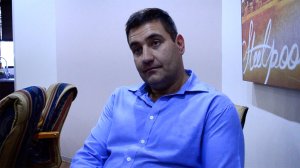Wheel assembly solution provider Wheel Assemblers will supply tyre and rim assemblies for the new X3 (G01) model from German vehicle manufacturer BMW South Africa (SA) to be built in Rosslyn, Pretoria.
Wheel Assemblers marketing and finance director Dr Johan-Paul Olivier says the company will supply a complete wheel assembly to the BMW SA facility on Just-in-Sequence (JIS) basis to be fitted on the new BMW X3 model. Wheel Assemblers is currently supplying wheel assemblies for the BMW SA 3 Series and for automotive manufacturer Ford Motor Company South Africa’s (FMCSA’s) Ranger and Everest vehicles.
“Instead of BMW SA getting the wheel parts individually, we manage the process as a T1 supplier – the rims, rubber valves, RDC valves, weights and tyres – and assemble them off site at our facility. We then send the complete assembly to the BMW facility in sequence,” he explains.
He points out that the Wheel Assemblers factory that will supply the parts for BMW SA is based in Rosslyn and the company’s other factory that currently supplies wheel assemblies for FMCSA is located in Silverton on the Ford premises, also in Pretoria.
About 45 people work at the Wheel Assemblers Rosslyn plant, which is producing 340 vehicles (1 360 assemblies) a day with a maximum capacity of 1 660 vehicles per day, and 34 people work at the Silverton plant, with a maximum capacity of 660 vehicles a day and currently producing 440 vehicles (2 200 assemblies) a day, Olivier highlights.
Meanwhile, Wheel Assemblers operational director Ockert van Schoor points out that wheel assembly has moved away from a manual process to an automated system. Manual wheel assembly systems are more likely to cause damage with little or no traceability, while automated wheel assembly systems decrease the risk of damage and increase traceability for quality and audit purposes.
“Manual assembly is not that precise and requires a lot of handling; with an automated machine, you can preprogram the machine for every assembly, reducing machine damage and ensuring repeatability. Very few people touch or handle the tyres and rims, that’s one of the reason there is minimal damage.”
Van Schoor highlights that the international market requires a high level of quality control and traceability, which means that producing the same quality for each wheel assembly is critical.
“With automated production facilities, you always get the same result; we can record and monitor the assembly results that are critical for the quality of the product. The pullover force and torque that is used just to assemble a tyre on the rim is recorded, the inflation pressure of each assembly is recorded, input temperature of the tyre is recorded, serial numbers of specific valves are recorded, uniformity readings are recorded and all the recordings get sent as a data file to BMW,” he explains.
He points out that each wheel assembly is connected to the vehicle identification number (VIN) of a specific vehicle, which helps to indicate and trace what happened if something went wrong with a tyre for any related warranty claims.
“It can get tracked back through the assembly line, and we can then audit our whole process to show that we used the correct functional process flow to build a specific assembly,” he states.
Cost of Plant
Olivier explains that the Wheel Assemblers BMW SA plant started production of wheel assemblies in March 2015, with an automated wheel assembly plant that was imported from the BMW vehicle production plant, in Dingolfing, Germany.
“We bought the automated wheel assembly plant from BMW Germany as the facility became available, owing to BMW facility’s strategic change to outsource their wheel assembly operations.
“Wheel assembly lines, parts warehousing and logistics takes up a lot of space,” he says, pointing out that BMW Global started to outsource wheel assembly to make more space available in their own factories. This is an international trend among various original-equipment manufacturers.
Van Schoor says 5 050 m2 is currently being used by the factory in Rosslyn for the production of wheel assemblies for BMW SA. However, space saving is not the only benefit of outsourcing the process for BMW SA.
“Tyre and wheel assembly has become a complicated and highly technical field – it’s not just putting a tyre on a rim, there is a large amount of specialised equipment required.”
Olivier concludes that the company has acquired an assembly line, an automated finished goods warehouse, dot marking and matching equipment, automated packaging robot and an inline quality package – testing done on tyres to assure quality – using approximately R30-million from self-finance, R10-million from the Department of Trade and Industry and a R60-million loan from financial services provider Nedbank.
Edited by: Zandile Mavuso
Creamer Media Senior Deputy Editor: Features
EMAIL THIS ARTICLE SAVE THIS ARTICLE
ARTICLE ENQUIRY
To subscribe email subscriptions@creamermedia.co.za or click here
To advertise email advertising@creamermedia.co.za or click here












